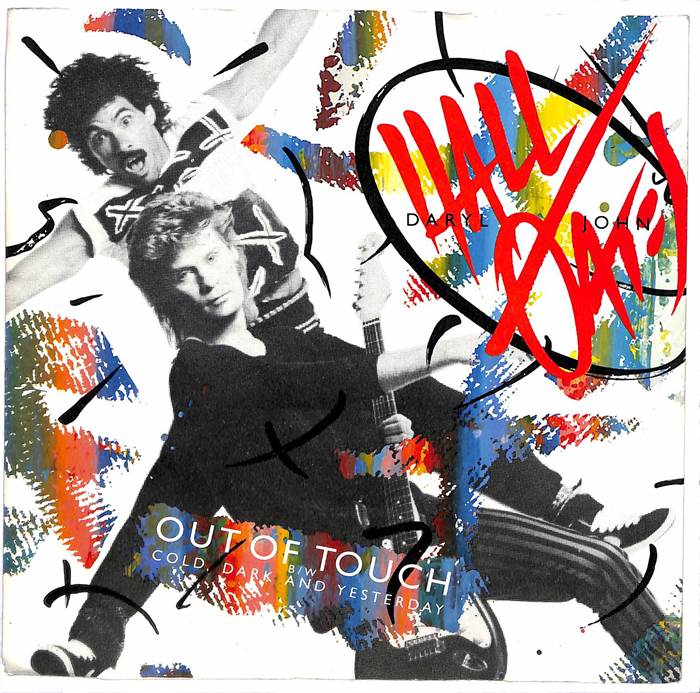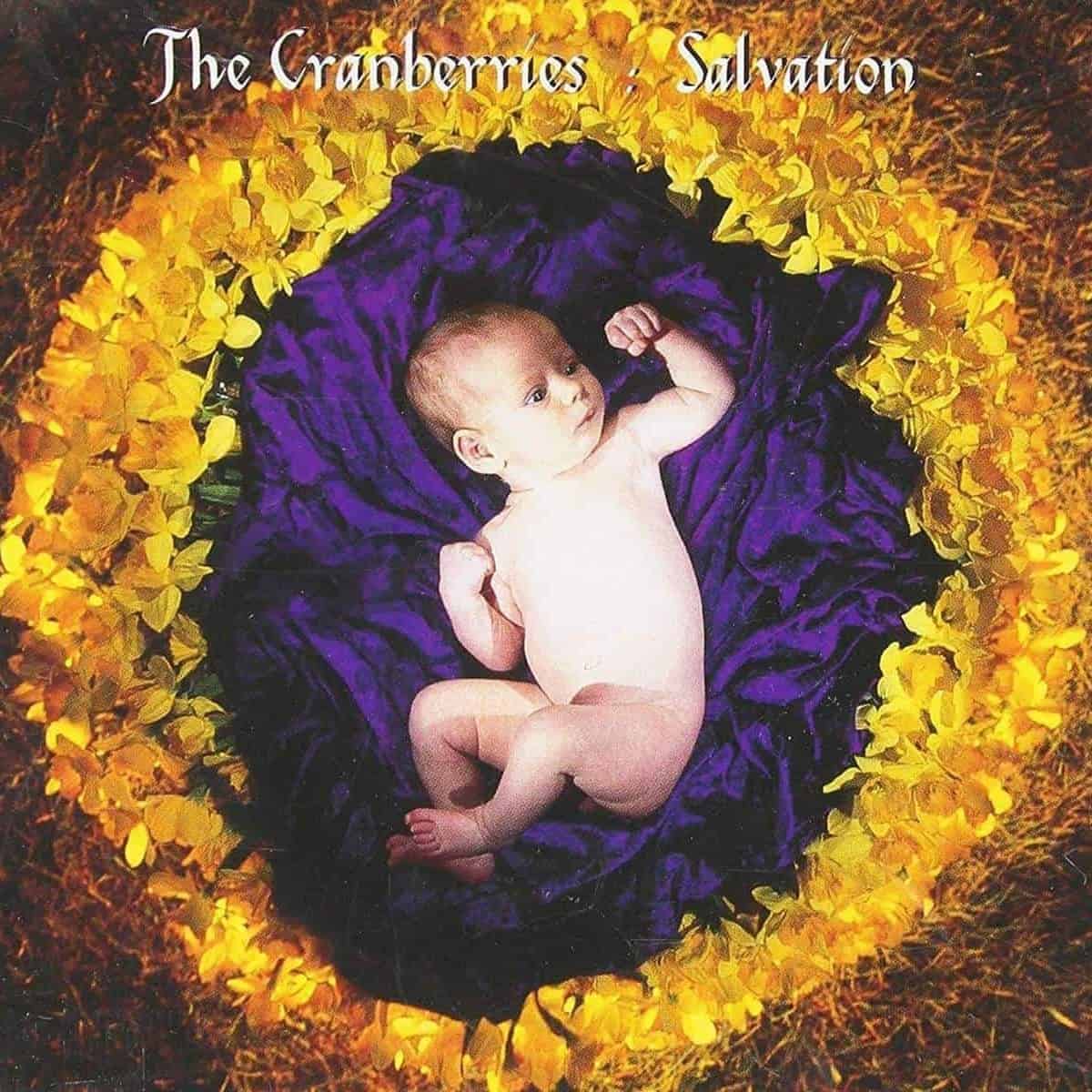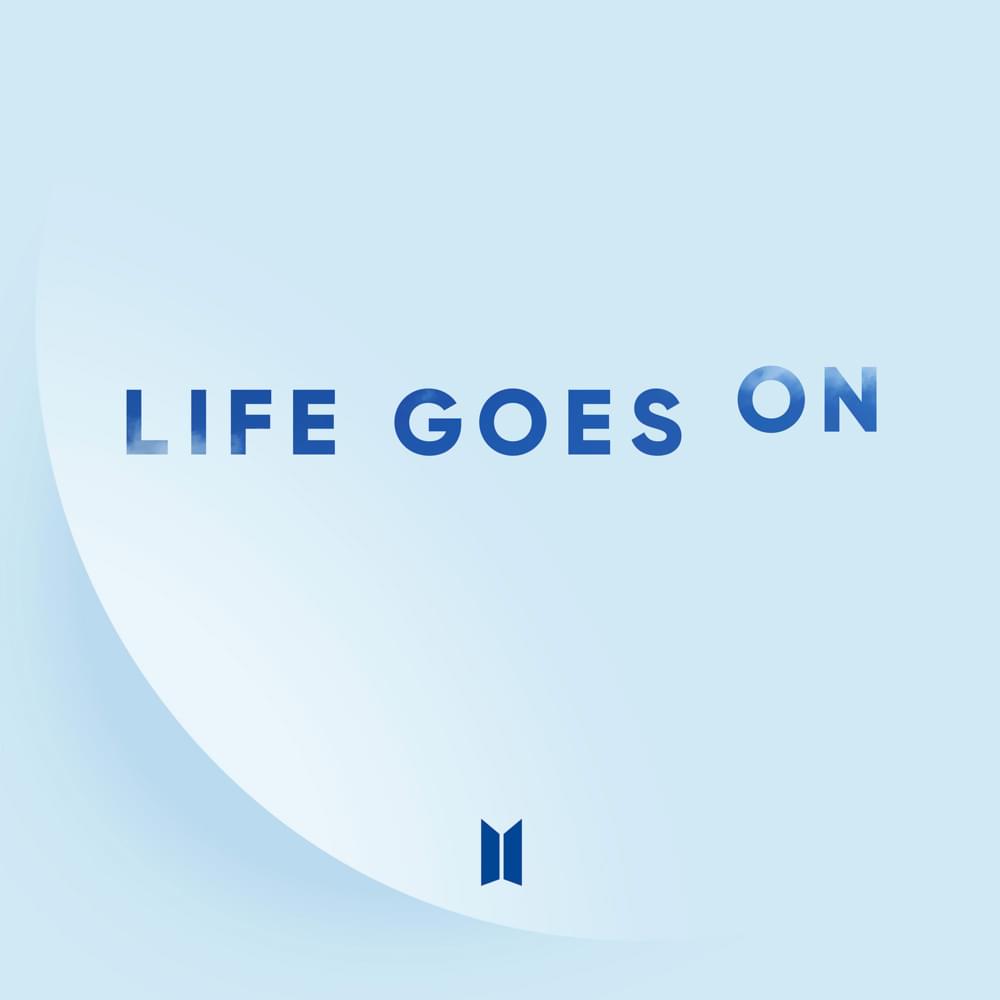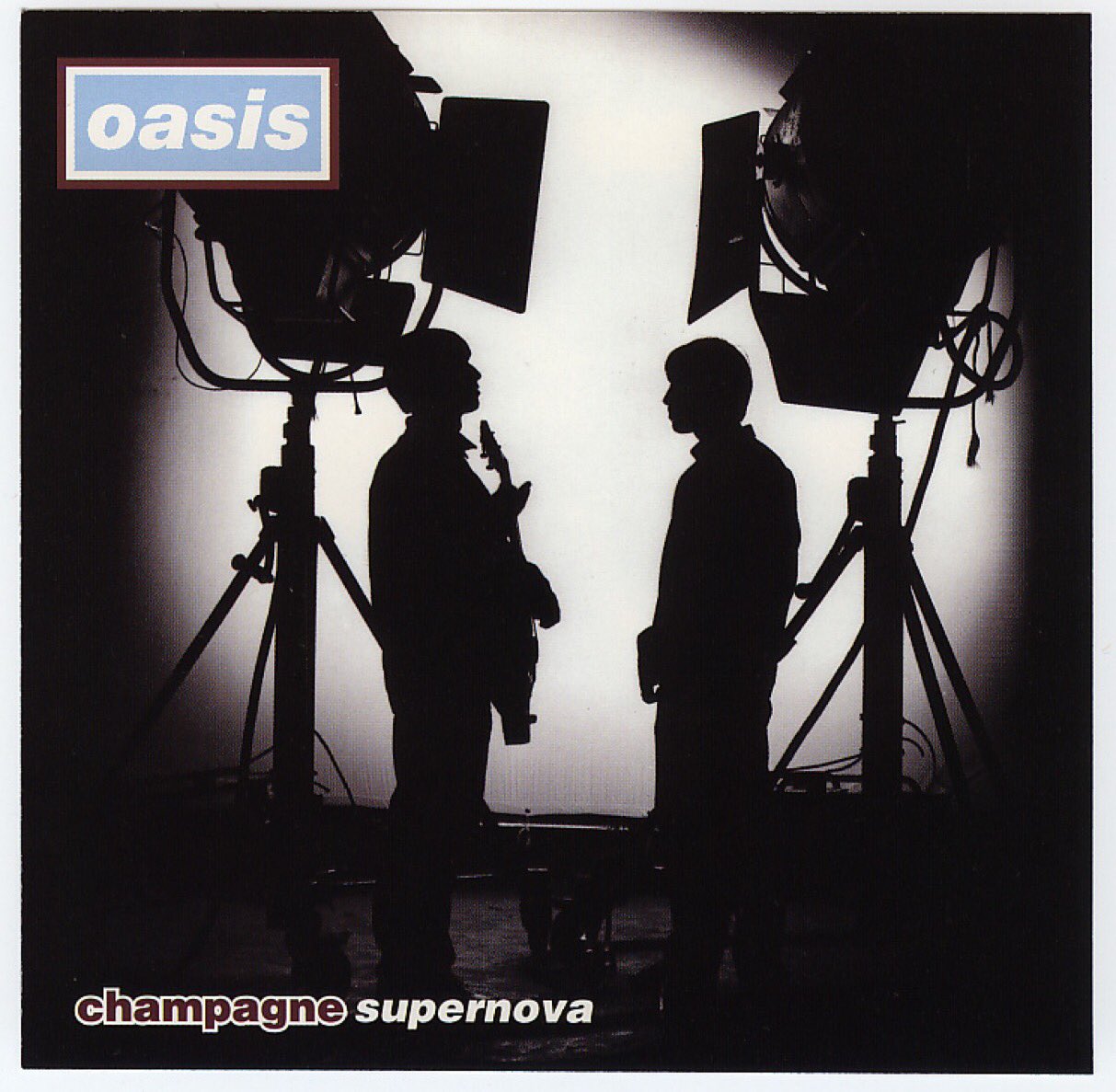In The Number Ones, I'm reviewing every single #1 single in the history of the Billboard Hot 100, starting with the chart's beginning, in 1958, and working my way up into the present.
Daryl Hall & John Oates - "Out Of Touch"
HIT #1: December 8, 1984
STAYED AT #1: 2 weeks
Never put a phrase like "Part 1" or "Volume 1" in the title of your greatest-hits album. If you do that, you are asking for trouble. You are tempting fate. It's one of the all-time great acts of pop-star hubris to give your greatest-hits album a title that implies there will be another greatest-hits album somewhere down the line. Only a tiny minority of musicians ever get to the point where they can release a single best-of. You should be happy that you have enough hits for one. You should not immediately start thinking about the next one. If you fail to rack up enough hits for another one, you'll be staring at the "Part 1" on that cover for the rest of your life.
You can see why Daryl Hall and John Oates would've felt safe putting the "Part 1" on their greatest-hits album in 1983. The duo had been around for a while, but they were at the absolute peak of their creative and commercial powers. Over a six-year stretch, they'd landed five singles at #1 and a bunch more in the top 10. H2O, their previous LP, had been one of the biggest-selling albums of 1983. They ruled the roost at MTV in the network's early years, and they were the rare white group who got serious airplay on R&B radio. They were on a run.
Rock 'N Soul Part 1, the best-of collection that Hall and Oates released in 1983, wasn't the duo's first greatest-hits album, but it was the definitive one. Rock 'N Soul Part 1 went double platinum. Hall and Oates recorded two new singles for the compilation, and both of those singles made it into the top 10. ("Say It Isn't So" peaked at #2; it's a 6. "Adult Education" peaked at #8; it's a 5.) The Hall/Oates era wasn't over yet. But after the release of Rock 'N Soul Part 1, Hall and Oates only scored one more #1 single. There have been plenty of Hall and Oates compilations over the years, but the duo never released a Rock 'N Soul Part 2.
The fall was going to happen eventually. It always does. Nobody maintains pop-chart dominance forever. Hall and Oates kept it going for a long time -- rising to fame when the Philly soul that helped birth them was fading from relevance, then surging back when they found a stripped-down synth-strut that perfectly aligned with early-'80s yuppie pop. By 1984, the sound of pop music had become maximalist, and Daryl Hall's slinky melodies weren't exactly suited for coked-out dance-pop thunder. But they still tried.
The title of Big Bam Boom, the album that Hall and Oates released in 1984, is basically a mission statement. As one of the biggest groups in pop, Hall and Oates had access to the most expensive cutting-edge synths, the Synclaviers and the Fairlights, and they took full advantage. They also brought in Arthur Baker, the prolific remixer and Afrika Bambaataa collaborator who'd just helped score the early rapsploitation movie Beat Street, as a "mix consultant." Hall and Oates did everything they could to update and modernize their sound, to integrate the big drum boom of the moment. It worked out OK!
Like Duran Duran's Seven And The Ragged Tiger, Big Bam Boom is a classic too-big-to-fail pop album -- one where the songs serve the big, expensive sounds. The duo's voice gets lost a little bit in the streaky synths and triggered drum-thuds, but the sounds themselves are so cool that it almost doesn't matter. Big Bam Boom doesn't have the icy, minimal sharpness of Hall and Oates' best early-'80s music, but it pounds you into submission anyway.
The video for "Out Of Touch," the album's lead single, dramatizes the whole situation pretty well. At the opening of the clip, Daryl Hall and John Oates are thrashing around onstage, trapped together inside a giant bass drum, while their oblivious bandmates play away alongside them. As the video goes on, we see Hall and Oates learning to control that huge drum, playing it with comically oversized sticks and pedals. Part of the time, Hall wears an ultra-goofy leopard-print suit that, as he notes in the oral history I Want My MTV, "made me look like a Dalmatian." Then we see them dancing in front of huge letters that spell out the words "out of touch." (The director, Jeff Stein, is the guy who did Tom Petty's "Don't Come Around Here No More." He's good with the comically overstated visuals.)
On paper, "Out Of Touch" is a song about a couple that's drifting apart, losing the tenderness that once held them together. The lyrics look pretty ridiculous on paper, but they at least have a meaning in context: "Broken ice still melts in the sun/ And times that are broken can often be one again." But it's plenty possible to hear a certain anxiety about Hall and Oates' place in the world in those lyrics. The last thing a successful pop duo wants to be is out of touch and out of time. Hall sings, "We're soul alone, and soul really matters to me," even though the song sounds absolutely nothing like the version of soul that he and Oates had been making a decade before.
But "Out Of Touch" still works on its own terms. The gently mocking melody still comes through the big, blobby bassline and the mechanized tick-tock of the beat. The hook isn't one of those classic Hall earworms that'll get stuck in your head whether you want it or not, but it does its job. Hall has enough swagger to shout-sing over the dance-club whomp without getting lost.
The album version of "Out Of Touch" already sounds huge, but for the video, the duo used Arthur Baker's remix, which sounds even bigger. That version of the track segues straight from the Big Bam Boom opener "Dance On Your Knees" into "Out Of Touch" proper, a pretty graceful DJ transition within the body of the song itself. Near the end of the song, Baker turns Hall's voice into an anguished, echoing sound-clip while layering in the same kind of sputtering electronic drum break that future Baker collaborators New Order had used on the 1983 single "Blue Monday." The end of that version of the track makes me feel like I've been hit by a pixelated truck. I like that.
After "Out Of Touch" finished its run at #1, Hall and Oates got to #5 with the follow-up single "Method Of Modern Love." (It's a 6.) But the next two singles from Big Bam Boom missed the top 10, and Hall and Oates didn't try to keep making bigger, newer sounds after that. Instead, they downscaled. Their next effort was the in-concert record Live At The Apollo, recorded with the former Temptations members David Ruffin and Eddie Kendricks.
Hall went off and made a 1986 solo album called Three Hearts In The Happy Ending Machine, and he made it up as high as #5 with the single "Dreamtime." (It's a 5.) Hall and Oates didn't get back together to make another proper album until 1988's Ooh Yeah! Its lead single "Everything Your Heart Desires" would be the last Hall and Oates single to hit the top 10. ("Everything Your Heart Desires" peaked at #3. It's a 5.)
Hall and Oates took most of the '90s off, and they went through some personal things. Hall broke up with his longtime romantic partner and frequent songwriting collaborator Sara Allen. In 1993, Jana Allen, Sara's sister and another frequent Hall co-writer, died of leukemia at the age of 36. By the time Hall and Oates came back with a new album in 1998, they were legacy artists with their own Behind The Music episode.
As legacy artists, though, Hall and Oates have done just fine for themselves. They're both funny and quotable interviews. They tour big venues and show up on soundtracks. They went into the Rock And Roll Hall Of Fame in 2014. Hall was prescient enough to start the web series Live From Daryl's House in 2007. It's a fun watch and a canny predictor of the sort of shit we're all watching during quarantine.
Hall and Oates had their moment. For a few years, they were absolutely huge. That moment ended, as all things do. We won't see them in this column again.
GRADE: 6/10
BONUS BEATS: The British dance duo Uniting Nations had a huge overseas hit when they turned "Out Of Touch" into a thumping Euro-house track in 2004. The Uniting Nations version went top-10 in the UK and in a bunch of European countries. In Romania, it was the biggest single of the year. (It didn't chart in the US.) Here's the incredibly dumb video:
BONUS BONUS BEATS: Here's Young Jeezy rapping over an interpolation of the "Out Of Touch" melody on his 2006 track "Streets On Lock":
(Jeezy's highest-charting single is the 2005 Akon collab "Soul Survivor," which peaked at #4. It's an 8. As a guest, Jeezy will eventually appear in this column.)
BONUS BONUS BONUS BEATS: Nero, another UK dance duo, sampled "Out Of Touch" on their 2011 single "Reaching Out," another thumping Euro-house track. Here's the video:
(In the US, Nero's highest-charting single is 2011's "Promises," which peaked at #70. Euro-house videos really have an aesthetic, don't they?)
BONUS BONUS BONUS BONUS BEATS: Here's Pastor Troy rapping over an "Out Of Touch" sample on a 2018 track that's also called "Out Of Touch":
(Pastor Troy's highest-charting single is the 2002 Ms. Jade collab "Are We Cuttin'," which peaked at a lowly #96 even though it's a fucking banger.)






